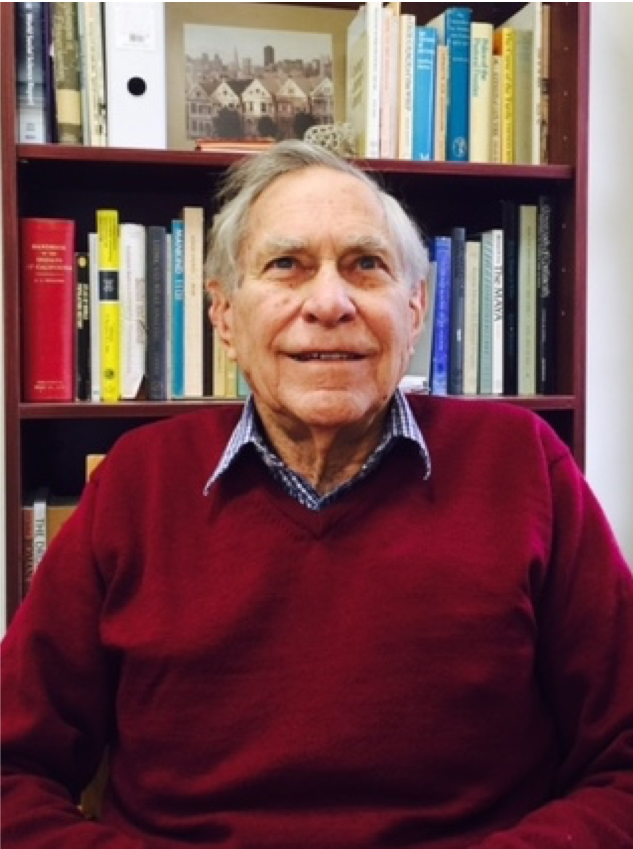Jubilee Fellow – 2015

Emeritus Professor Gerard Ward
BA (Auck), MA (Auck), PhD (Lond)
2015 Reflections
When I was elected a Fellow of the Academy of the Social Sciences in Australia, in August 1971, I was still resident in Port Moresby, and Professor of Geography in the University of Papua New Guinea. This might seem to have been a breach of the Academy’s rules about residency in Australia, but it was already known that I was about to take up Professorship of Human Geography at the Australian National University, and it was as such that my position was entered in the Academy’s records! It seems that the (then) Social Science Research Council of Australia also recognised this in the case of Charles Rowley who was a stalwart of the Council (and later the Academy) and was not required to become an “Overseas Fellow” when living in Port Moresby as Professor of Political Studies at UPNG. I have remained grateful for the fact that at the time the Australian Territory of Papua was apparently recognised by the Council and Academy as part of Australia, not least for the benefits which it soon gave me.
I took up my post in the ANU’s Research School of Pacific Studies in December 1971, and soon discovered the great advantages of that School’s multi-disciplinary character where all disciplines sharing the common area interest in the Pacific Islands and nearby parts of Asia. It was the Academy’s similar multi-disciplinary character which quickly made it an institution of great value to me and my research. Through meetings of the Academy’s Panel A, I soon widened my range of scholarly contacts across Australia which helped in my academic work for many years. This work focussed on the spatial aspects of, and relationships between, land use, land tenure and populations throughout the Pacific Islands and my years at UPNG had greatly widened my personal experience in the field. Through the Academy, I was able to interact with a much wider range of scholars in fields such as anthropology, demography, economics, and history from other institutions whose work had relevance to my primary field areas.
One particular Academy project, for which I served as chair, was its multidisciplinary “Australia and the South-West Pacific Project” from 1983 to 1986. The aim was to bring together Australian and Pacific Island individuals, who might be administrators, academics or from the private sectors to consider basic questions underlying current social, economic and political issues and tensions in the Pacific Islands. The approach was to work under the general concept of “Chatham House” rules so that individuals would not be seen or speak as representatives of their employing institutions, but would be free to speak and write as individual experts rather than as spokespersons bound by institutional views. Discussion papers were prepared by both Pacific Island and Australian contributors on each major theme, including strategic and defence interests, trade and economic relations, rural development and social change, aid, the roles of elites, population growth and migration and assessments of development aid and future needs. The themes were finally discussed at a workshop with 21 participants and the Academy published a report on the project[1] The discussion throughout the project, free from the constraints of vested interest, was a crucial feature owing much to the Academy’s intellectual and multi-disciplinary ambiance.
Throughout my career as a researcher of the Pacific Island region I benefited from the contacts and multidisciplinary ethos of the Academy. At different times being chair of Academy committees gave wider opportunities for making international contacts, and in other roles, such as my involvement in (and later President of) the Pacific Science Association. For many years the Academy link helped when I served on the Councils of the University of Papua New Guinea and the National University of Samoa during its establishment and first 20 years of development. When these institutions needed expertise it was usually possible to find appropriate people by using contacts within the Academy.
If I were to argue for new or continued emphases within the Academy’s mandate, it would be for more and stronger links with academic and intellectual institutions within Australia’s key neighbours in the Pacific and nearby Southeast Asian regions to help improve Australian understanding of the needs and views of their people.
[1] Published as: Muriel Brookfield and R. Gerard Ward, (editors) New Directions in the South Pacific: a Message for Australia, Academy of the Social Sciences in Australia and the Research School of Pacific Studies, The Australian National University, Canberra, 1988.